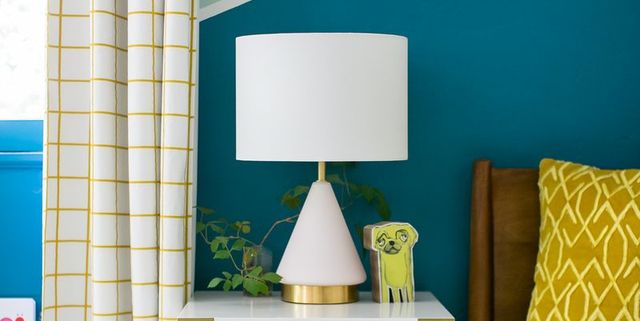Transforming Your Space: The Art of Interior House Painting in a Single Hue
The art of interior house painting using a single color
The interior of your home is your personal canvas, where you have the creative freedom to express your style and personality. One of the most effective ways to transform your space and create a cohesive, harmonious look is through interior house painting. While there are endless color options to choose from, there’s something timeless and elegant about opting for a single hue. In this article, we’ll explore the art of interior house painting using a single color, providing you with tips and insights to help you achieve a beautifully harmonious living space.
The Power of a Single Hue
Choosing a single hue for your interior house painting project is a design choice that exudes simplicity and sophistication. Here are some of the compelling reasons to opt for a monochromatic color scheme:
Timeless Elegance: Monochromatic interiors have an enduring appeal. They create a sense of timelessness that can withstand changing design trends.
Visual Cohesion: A single color creates a cohesive and fluid look throughout your home, connecting spaces and making them feel more expansive.
Serenity and Calm: Monochromatic interiors are known for their calming and soothing effects. They can help reduce stress and create a tranquil atmosphere.
Accent Opportunities: When using a single hue, it’s easier to introduce colorful accents through decor, artwork, and furnishings.
Emphasis on Texture: A monochromatic palette places more emphasis on textures and patterns, allowing them to shine.
Selecting the Right Color
Choosing the right color is crucial to the success of your interior house painting project. Here are some steps to help you make an informed decision:
Consider Your Style: Think about your personal style and the mood you want to create. Are you drawn to warm and cozy interiors, or do you prefer a more modern and minimalist look?
Analyze Natural Light: Take into account the natural light in your space. Some colors work better in well-lit rooms, while others are ideal for spaces with limited natural light.
Sample Colors: Test paint samples on your walls to see how they appear in different lighting conditions. This will help you make a more informed choice.
Consider the Room’s Purpose: Different rooms may benefit from different color choices. For example, serene blues and greens work well in bedrooms, while vibrant reds can create an inviting dining room.
Match with Existing Decor: Ensure that the color you choose complements your existing furniture and decor. It should enhance, rather than clash with, your furnishings.
Preparation and Painting
Once you’ve chosen your color, it’s time to prepare your space and start the interior house painting process. Here are the essential steps to follow:
Clear the Space: Remove furniture, fixtures, and decor from the room to protect them from paint splatters. If moving everything out isn’t feasible, push everything to the center of the room and cover it with drop cloths.
Clean and Repair: Ensure that the walls are clean and free from dust, dirt, and imperfections. Patch any holes or cracks and sand them smooth for a clean surface.
Prime the Walls: Applying a primer is essential, as it helps the paint adhere better and provides a more even finish. Use a primer that is compatible with the type of paint you’ve chosen.
Painting Techniques: Consider the painting techniques you’ll use. For a smooth, uniform finish, use a roller for most of the wall, and a brush for edges and corners. Apply paint in thin, even coats.
Allow for Drying Time: Let each coat of paint dry completely before applying the next. Follow the manufacturer’s instructions for recommended drying times.
Adding Depth and Texture
To avoid a flat and uninspiring look, incorporate depth and texture into your monochromatic interior:
Accent Wall: Consider creating an accent wall using a slightly different shade of your chosen color. This adds visual interest and breaks the monotony.
Textures and Patterns: Experiment with textures and patterns through textiles, upholstery, and decor items. For example, a mix of matte and glossy finishes can create an elegant contrast.
Statement Furniture: Incorporate statement furniture pieces that stand out in your monochromatic room. A bold, unique piece can be a focal point.
Lighting and Color
The quality of lighting in your space can greatly affect how your chosen color appears. Here’s how you can use lighting to your advantage:
Natural Light: Maximize natural light with sheer curtains or blinds that allow sunlight to filter in. This will enhance the color’s vibrancy.
Artificial Lighting: Choose lighting fixtures that complement your color scheme. Warm or cool-toned lighting can influence the mood of the room.
Layered Lighting: Combine ambient, task, and accent lighting to create a well-lit and inviting space.
Maintaining Your Monochromatic Interior
Once your interior house painting project is complete, it’s essential to maintain the beauty of your monochromatic space. Here’s how to keep it looking fresh:
Regular Cleaning: Dust and clean your walls and furnishings regularly to prevent the accumulation of dirt and grime.
Touch-Ups: Be prepared to perform touch-up painting as needed to cover up any scuffs or minor imperfections.
Protective Measures: Use furniture pads, coasters, and area rugs to protect your painted surfaces from scratches and stains.
Reevaluate Over Time: As time passes, your taste and style may evolve. It’s okay to reevaluate your color choice and make changes as needed.
Conclusion
Embracing the art of interior house painting in a single hue can transform your living space into a haven of simplicity, elegance, and harmony. By selecting the right color, preparing your space, and adding depth and texture, you can create a home that reflects your personality and style. With attention to lighting and ongoing maintenance, your monochromatic interior will continue to inspire and delight for years to come. Whether you opt for a soft, serene palette or a bold, dramatic hue, a single color can make a powerful design statement in your home.











Post Comment